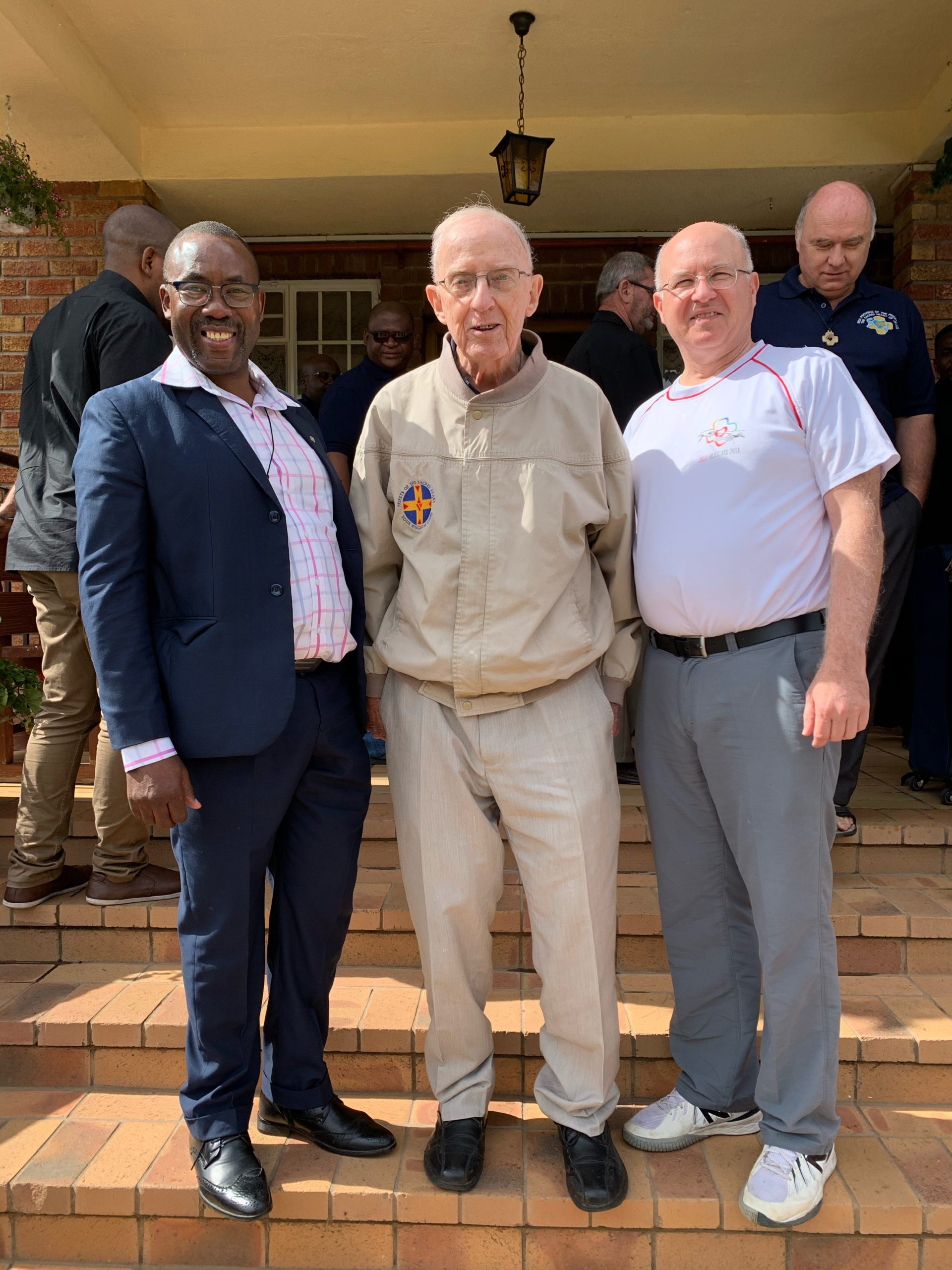Fr. Stephen Huffstetter, SCJ, vicar general, writes about his recent visit to the South African Province where he served as an observer to their province elections. As he notes, Fr. Steve first learned about South Africa from the missionaries who would visit with students when he was in the minor seminary. He writes:
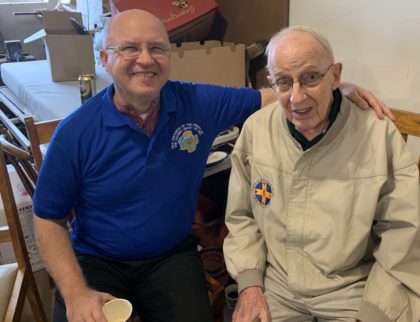
The Republic of South Africa has been an important part of the US province’s missionary outreach for many years. I first remember hearing about this apostolate as a teenage high school student at Divine Heart Seminary. On a visit home, one of our alumni and former superior general, Bishop Joseph DePalma from the De Aar Diocese, celebrated mass for us. He impressed on us the difficulties of ministering to the various groups of faithful separated by the apartheid system, but also the faith, resilience and beauty of the people.
Over the years, I heard many similar stories from missionaries. Besides parishes, we staffed trade schools in Aliwal North and in neighboring Lesotho. A seminarian a few years ahead of me served his apostolic internship overseas and his letters home kindled my interest further.
The South African SCJs held an assembly the first week of December. One key item was the election of their provincial superior and council. They invited me to be an observer at the assembly and oversee their election process.
I flew into Johannesburg on a Saturday evening. The airport shops were full of Green Springbok shirts and memorabilia to celebrate the South African Rugby team’s recent victory in the 2019 World Championships. I remembered watching the movie Invictus about how in the years immediately after apartheid fell, the team helped bring the whole country closer together on their way to winning the 1995 World Cup.
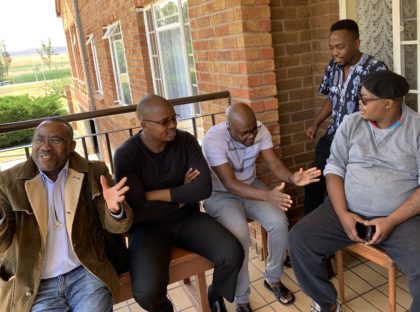
Fr. Bernard Sompane, the provincial superior, greeted me at the airport. As we drove to the Provincialate, he began my orientation and education about the city and country. The Provincialate moved to South Africa’s largest city a few years ago in the hope that it would offer new apostolic opportunities and attract vocations from a broader area of the country. The house has been renovated to accommodate more residents and visitors; it is located in a university district.
Several of the province’s scholastics [students] joined us for a welcoming supper. They had just finished exams at the end of the academic year and were preparing for summer (in the Southern Hemisphere) ministry placements and vocational visits.
Sunday morning we drove into Soweto, the southwest township area that was the bastion of social unrest and protest during the apartheid era. Our first stop was a memorial to Hector Peterson, a 12-year-old student shot and killed by police during a 1976 protest. A picture of a neighbor carrying his limp body to the hospital with his sister running alongside caught the world’s attention. Nearby was the home of Nelson Mandela, now a museum to teach about his life and the people’s struggle for equality. Practically across the street was the home of Nobel Peace Prize winner Bishop Desmond Tutu. I was privileged to once hear him speak at Trinity University in San Antonio. He lead South Africa’s Truth and Reconciliation Commission, realizing that in order to heal the deep wounds that divided the county, there needed to be honesty about the horrors that occurred before the process of healing could begin.
The SCJs serve at Our Lady of Mercy Parish in Emdeni. Catholics are a minority (7% of the population) in the country, but the 200 families in this parish are quite active. On this first Sunday of Advent, the rite of the blessing of the senses and prayers of scrutiny welcomed 16 people into the RCIA program. One parishioner will be ordained a deacon within the year. Three other parishioners have also begun studies in the diocesan seminary. Fr. Joshua serves as pastor, with regular weekend help from Fr. Bernard. The music was especially inspirational as all the people in the pews joined their voices in rich harmonies to fill the church with songs of praise and worship.
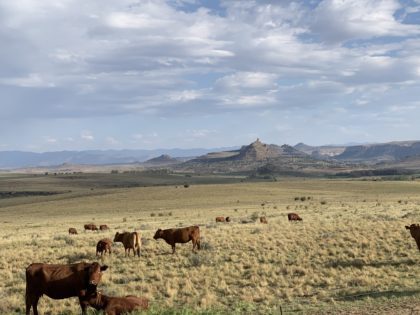
We drove to Aliwal North, about six hours to the south. With the rolling grasslands populated by grazing cows, horses and sheep, I passed through many landscapes that reminded me of parts of South Dakota. A unique feature was the abundance of termite mounds. Like many rural communities that rely on farms and an agricultural economy, the area has been hit hard by a long-lasting drought. There is little industry and people patch together a number of part-time jobs or do piecework to earn what they can. Unemployment is at 29% and the best students in the schools usually migrate to South Africa’s urban centers, creating a brain drain.
One of the highlights of my trip was the chance to finally meet Fr. John Strittmatter for the very first time. The Pennsylvania native was sent as a missionary to South Africa from the US Province over 50 years ago. We swapped stories of SCJs we mutually knew –– fellow seminarians for him, mentors and teachers for me.
Before the assembly began, I had most of the day to explore the area. Fr. Piotr Surdel serves as pastor of Sacred Heart Cathedral in Aliwal North. He recounted the difficulty of integrating various groups into one parish community after the fall of apartheid. Churches were no longer segregated by law. It is a slow and ongoing process even a couple of generations later. Touring the rest of the city, I was struck by the difference and inequality of the housing. The poorest neighborhoods had blocks and blocks of corrugated iron shacks not much bigger than a two-car garage.
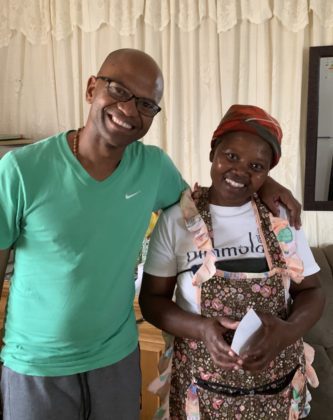
Fr. Ntsikeleleo Bambatha grew up in this area and took me to visit an aunt who helped raise him. Her home was very small by Western standards, but clean and well kept. She spends the morning cooking, and the rest of the day walking to sell items on the street. It takes many hours to make enough to feed her family and have money to buy supplies for another day.
The Mt. Carmel Youth Center was once home to a women’s religious community, but as their numbers declined, they turned it over to the diocese. It is now used for youth retreats and serves as a residence for youth in need. South Africa has one of the highest rates of HIV infection in the world, and many children need a place to stay once their parents die or their families can no longer take care of them. Fr. Ntsikeleleo served here for several years under the tutelage of Cecilia, a passionate and committed Afrikaner who manages the facility.
The South African Province is a small group, 12 priests and eight seminarians. The priests come from Poland (5), South Africa (4), India, (1) the United States (1) and Germany (1). Three seminarians are South African, three are from Lesotho and two come from Zambia. The presence of seminarians gives the province a great sense of hope for the future. The work is spread over a wide area; SCJs have worked to build up the Church there since 1923.
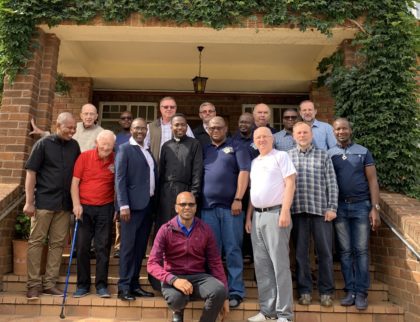
The first day of the assembly was filled with reports and information. Fr. Bernard gave an overview of the State of the Province and Fr. Joshua Mpiti, the provincial treasurer, provided a financial report. The US and German provinces have been generous in helping with mission grants every year.
As members discussed the most pressing needs of the province, they recommended that the new administration continue to focus on reconciliation and building a common vision so they can collaborate and move forward. That night we gathered in the recreation room for an evening of socializing. While I had never met many of the legendary characters whose stories were recounted, I enjoyed the memories and laughter.
During the second day of the assembly, prayers were answered in the form of a long, slow, good soaking rain. In cities, forecasters often speak of the threat of rain because it might conflict with planned activities. In semi-arid lands, people talk of the promise, or hope of rain so that the cycle of life might continue.
Before the election, each of the finally professed members had a chance to highlight for the group what he saw as the greatest needs for the province. The three candidates for provincial superior then spoke about themselves and their vision for the province. Fr. Chris Grzelak, who was eventually elected, spoke about how becoming provincial superior would cost him a high price – putting aside his ministry as a theology teacher in the seminary for a time. It is so true that anyone called to leadership will likely have to pay a price by giving up another apostolate where he is doing good work.
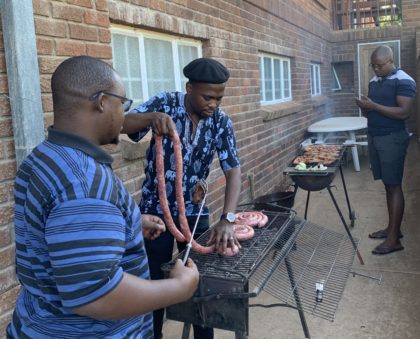
We prayed a Dehonian prayer before each ballot, and had a time of silent prayer to reflect after every vote. Usually in our congregational election the youngest members are asked to serve as tellers, but for this assembly we had the help of the two elder statesmen in the province: 84-year-old Fr. John Strittmatter and 77-year-old Fr. Karl-Heinz Ofenloch.
After his election as provincial superior, Fr. Chris Grzelak addressed the group, expressing his gratitude in their trust of him, and his pledge to serve with a willing heart. He affirmed the need to promote reconciliation and planning for what they need to do and where they want to be five and ten years from now.
We closed the assembly with a fantastic cookout (Braai) with a feast of grilled meats and local specialties. I have lasting memories of those I met, and look forward with hope to see how things will develop in the years to come.
